Data Science Day 2024
Recap
21 October 2024
In virtually every academic discipline, the ability to collect, analyze, and interpret data has become essential. To highlight these developments and promote data science skills, the UvA Data Science Centre, part of the UvA Library, hosts Data Science Day each year in October.
This year, the event expanded beyond a single location, featuring multiple sessions across all UvA campuses. From the latest developments in research to hands on activities and discussions with industry representatives, it was a varied and novel programme with a lot strong input from the UvA data science community and industry professionals.
AI for Science: opportunities and challenges
The day kicked off at 10:30 with presentations by Prof. dr. Paul Groth (Scientific director Data Science Centre) and Dr. Bernd Ensing (Director FNWI AI4Science Laboratory) followed by a panel with Dr. Daniela Huppenkothen and Prof. Alfons Hoekstra on the oppertunities and challenges of AI for Science.

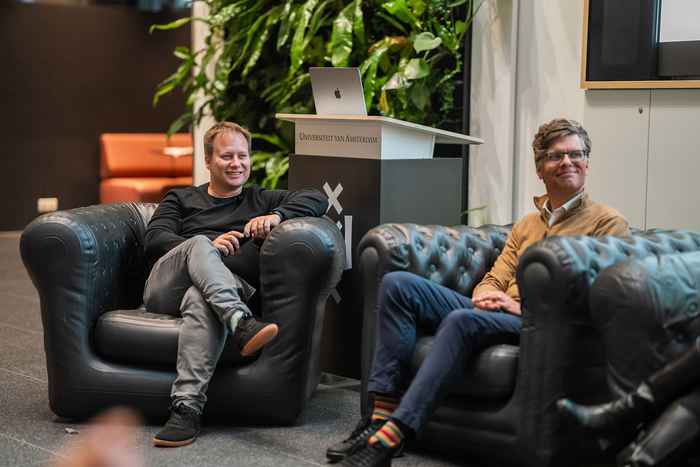
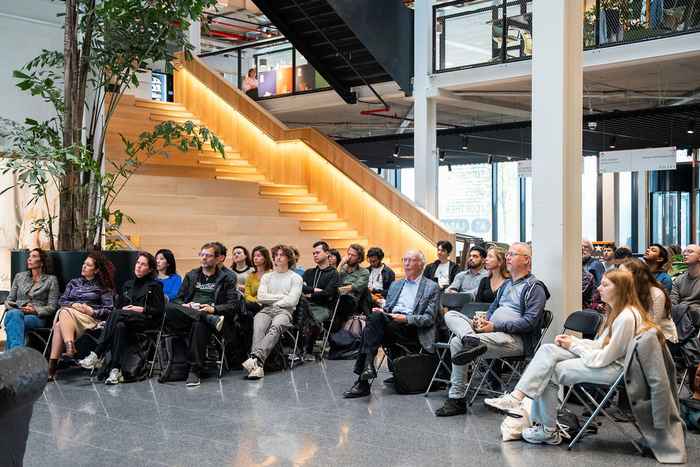
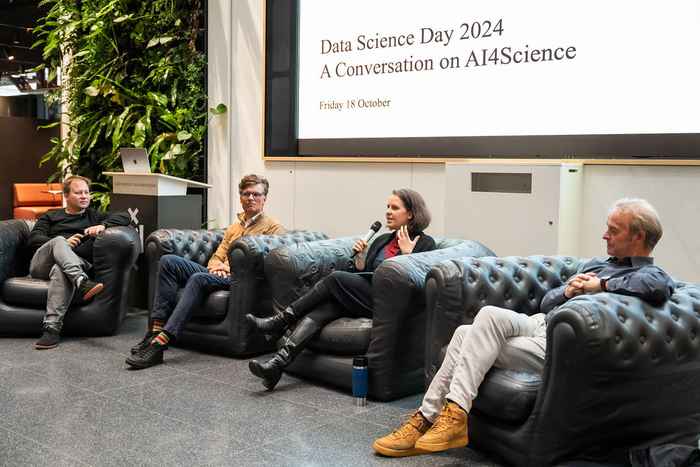
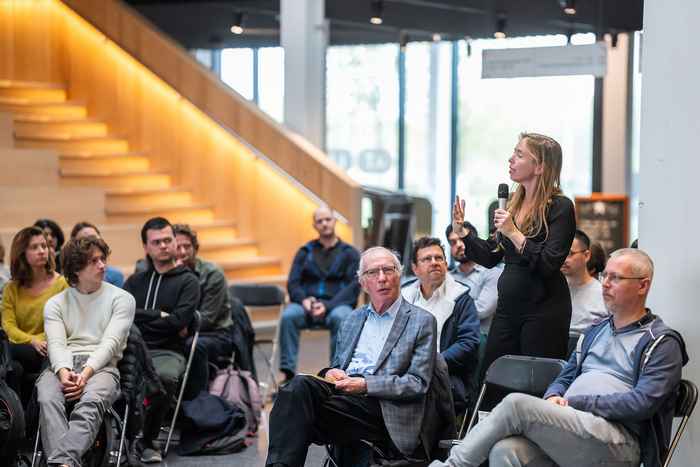
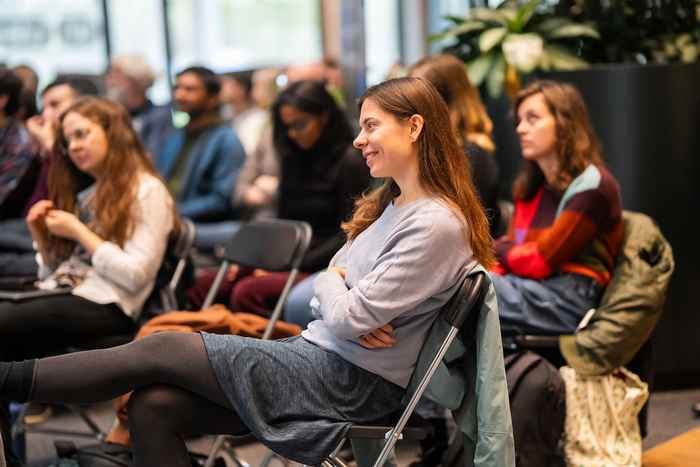
Data science in Medicine: From ideation to production
Simultaneously, between 10:30 and 12:00, at the Amsterdam UMC, speakers and attendants explored how data science drives medical innovation from early-stage ideas and research to real-world applications.
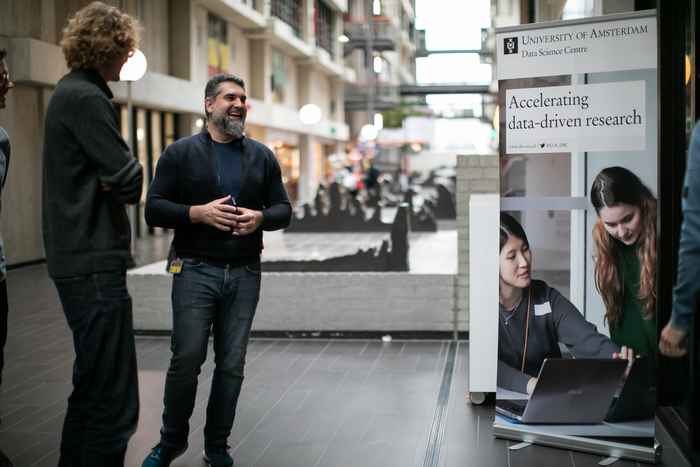
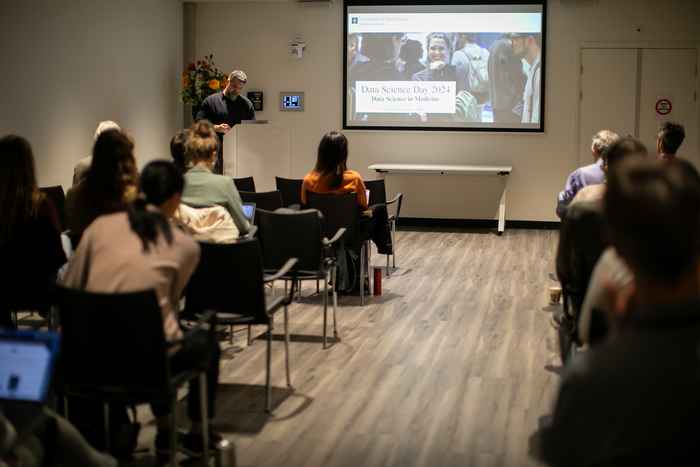
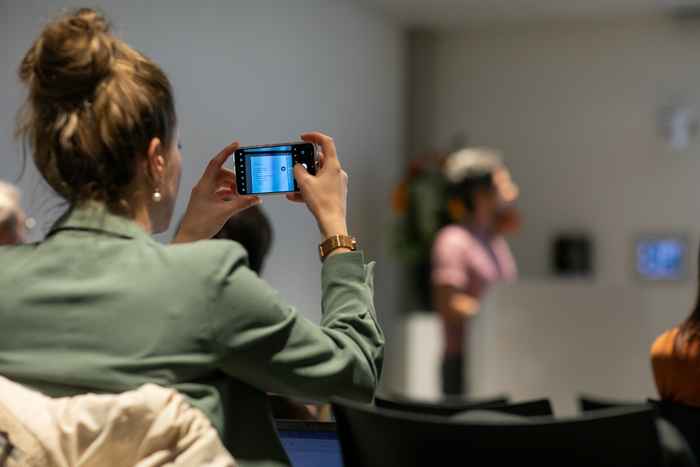
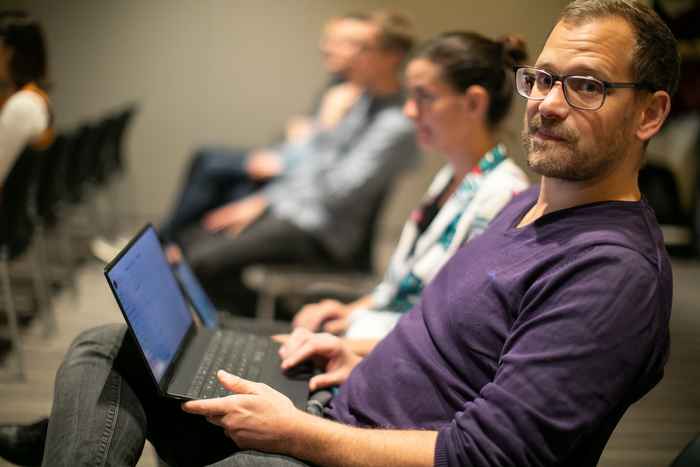
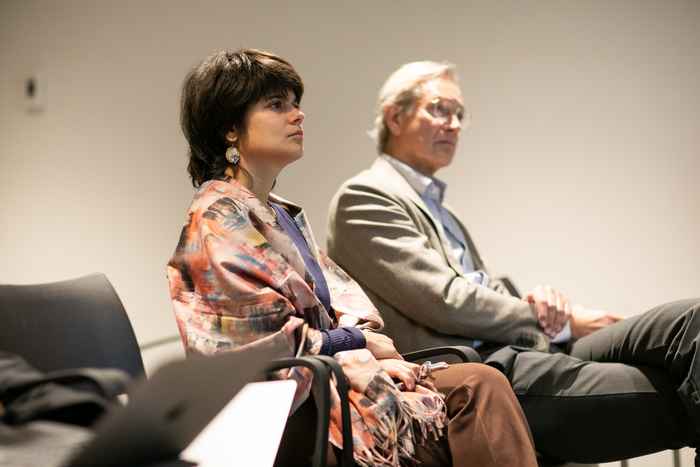
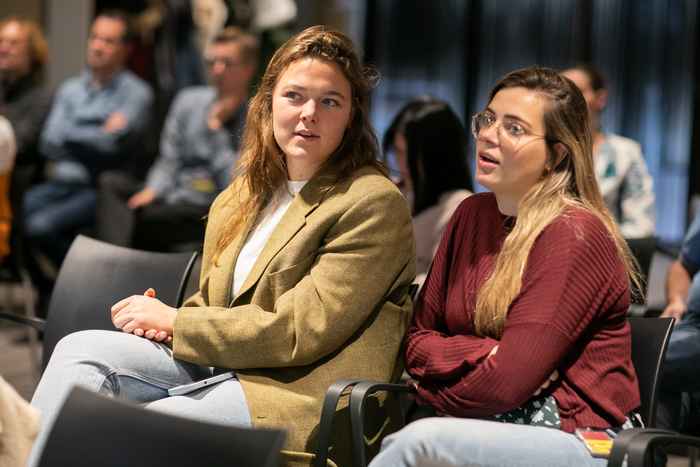
Key takeaways of the session were that data science in medicine is far from trivial and that teams should be built on different expertise. Another insight was that, depending on the medical problem, med-LLMs do not always outperform general LLMs. Also, steps were identified for a successful clinical AI model: 1) Collaborate with doctors, 2) Adapt based on feedback, 3) Ensure robust QA, 4) Iterate, 5) Build trust, and 6) Keep monitoring.
Navigating the GDPR: Informing data subjects and ensuring compliance in research projects
Between 11:00 and 12:00, another morning session took place at the Bushuis (University Quarter), where participants learned everything about GDPR requirements for informing individuals when their personal data is collected from sources such as social media, corpora, archives, or newspaper articles.
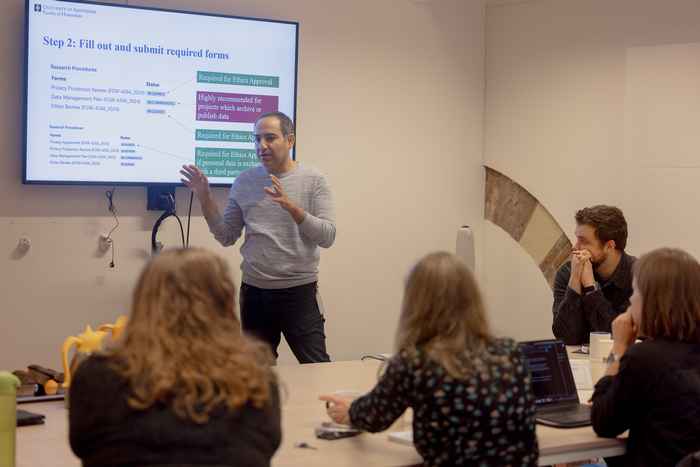
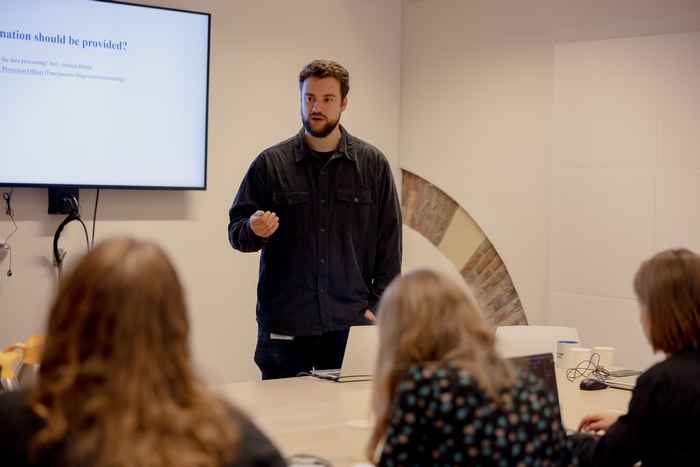
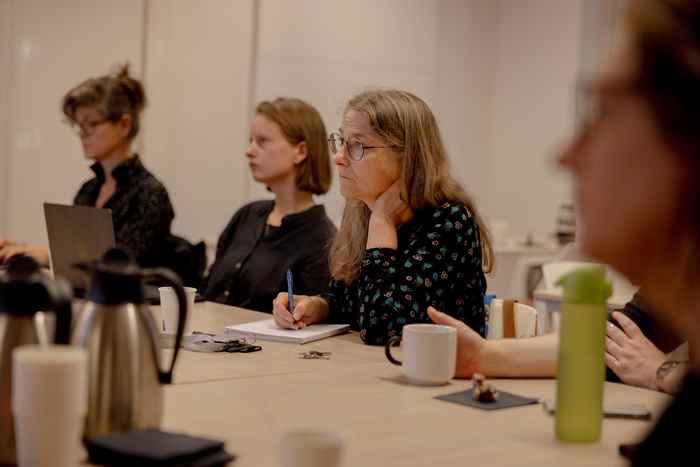
The discussion covered best practices for complying with these obligations under EU privacy law and highlighted common challenges that researchers encounter. Additionally, the Humanities RMS portal was introduced as a valuable tool for assessing GDPR compliance in research projects. This platform aids researchers in protecting privacy and ensuring they meet legal requirements while conducting their work ethically and responsibly.
Data Discovery Jam: Exploring rich social science datasets
In the afternoon, from 13:00 to 16:00, a Data Discovery Jam took place at CREA (Roeterseiland campus). Participants explored the possibilities of diverse large datasets of the faculty of Social and Behavioural Sciences.
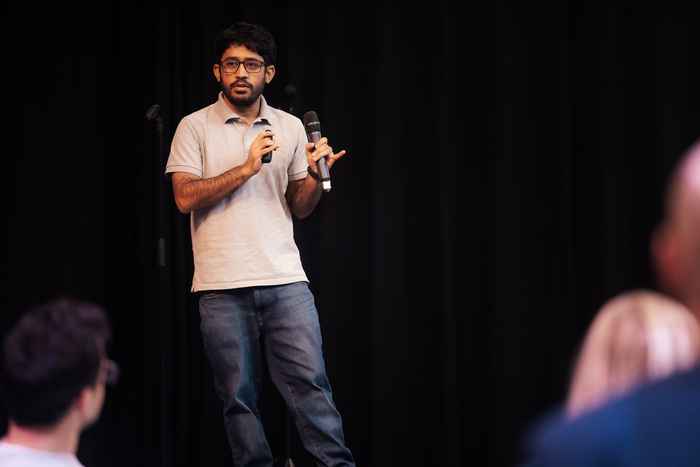
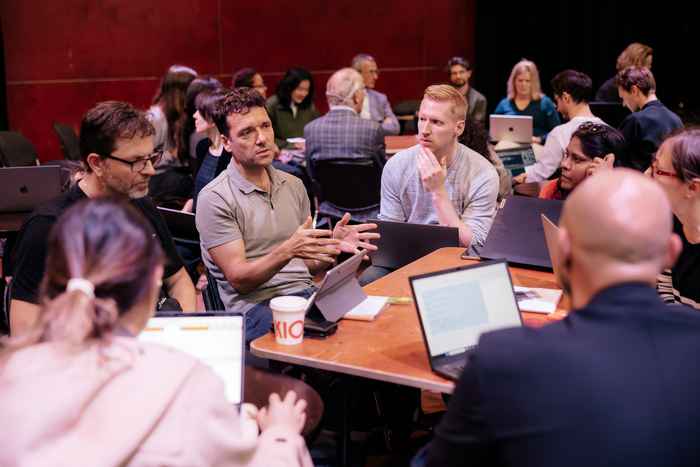
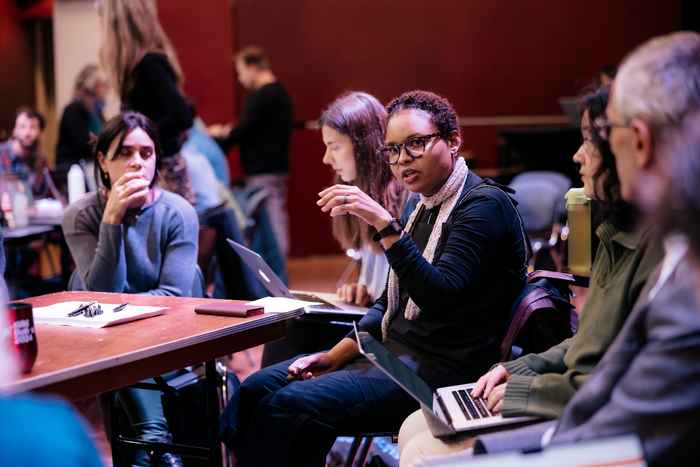
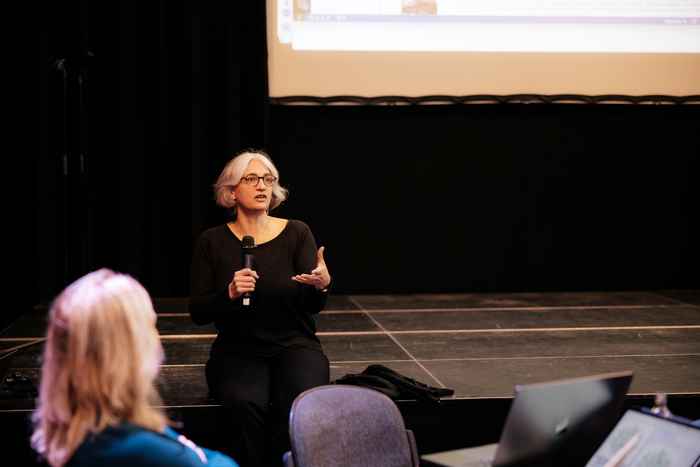
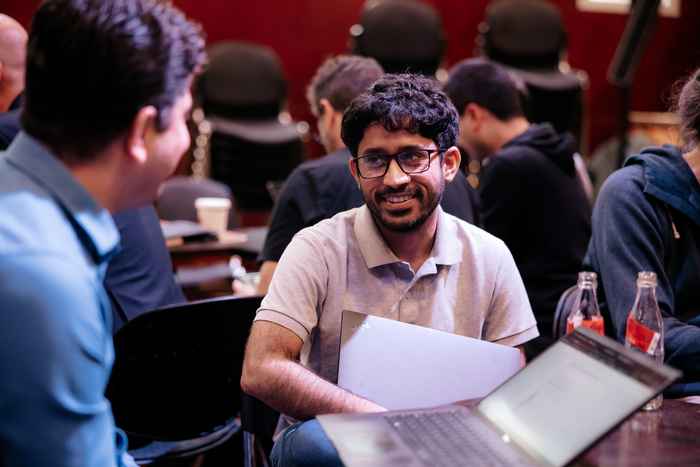
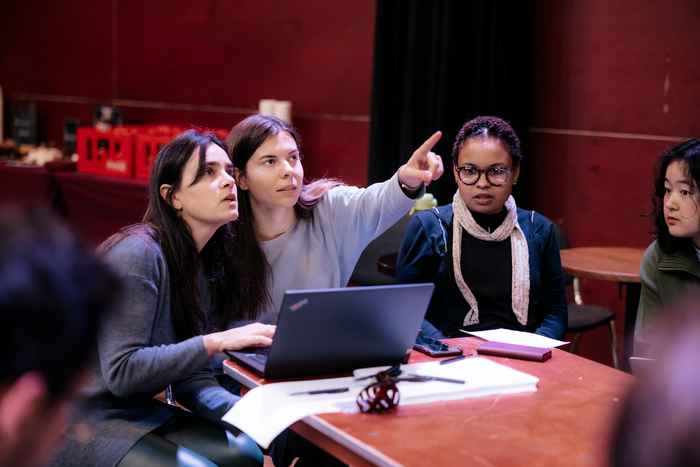
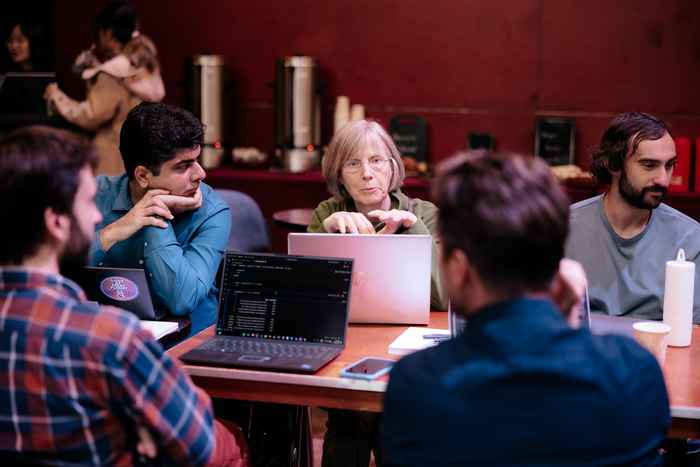
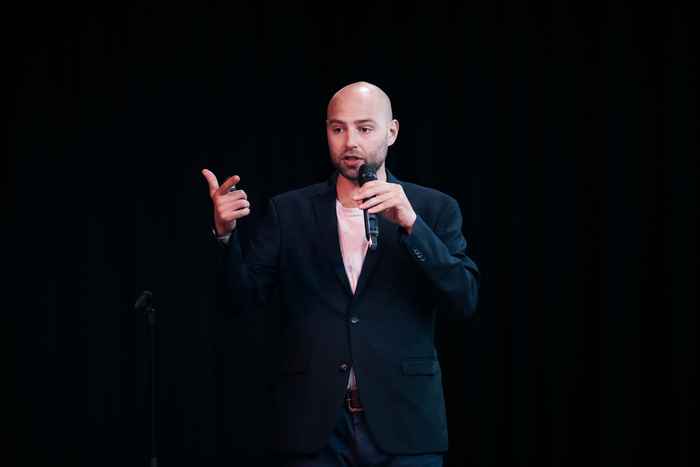
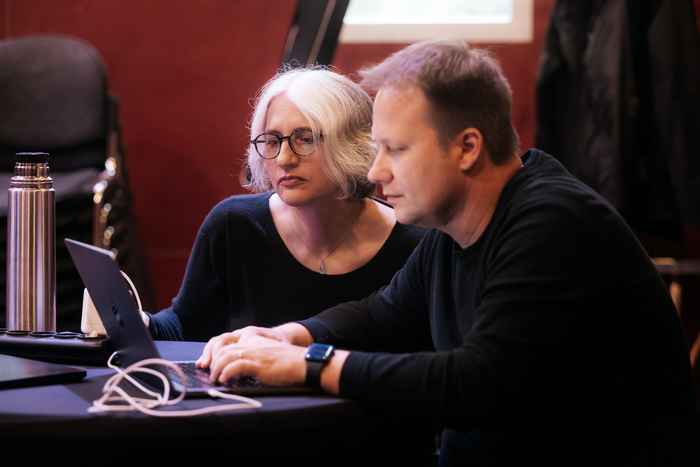
Prof. dr. Agneta Fisher presented on Emotions and populist attitudes an dr. Niels Smits on predicting student success.
Generative AI in HRM: Applications, challenges, and ethical considerations
The day concluded with a session on generative AI in HRM between 15:00 and 17:30. HR leaders, labor experts, and AI scientists debated best practices for managing Generative AI-empowered workforces, while researchers from various disciplines shared insights on the functionality and ethics of Generative AI systems.
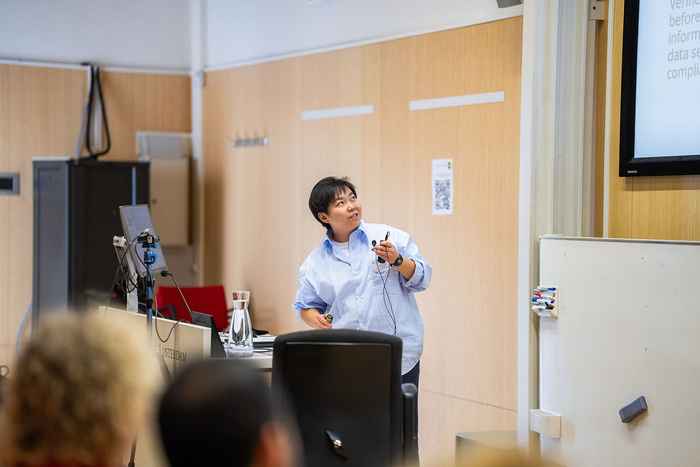
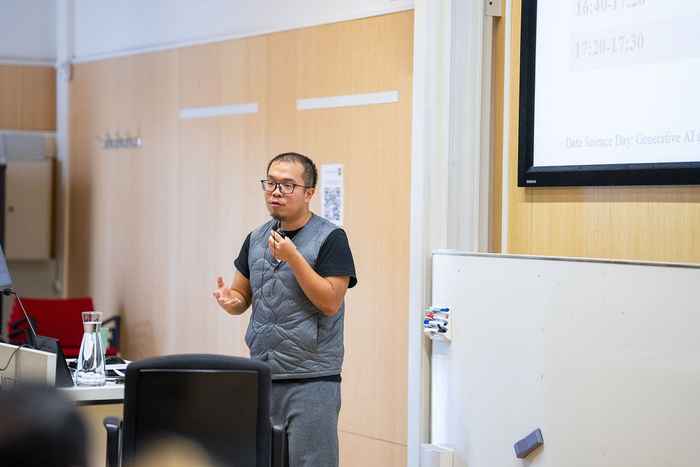
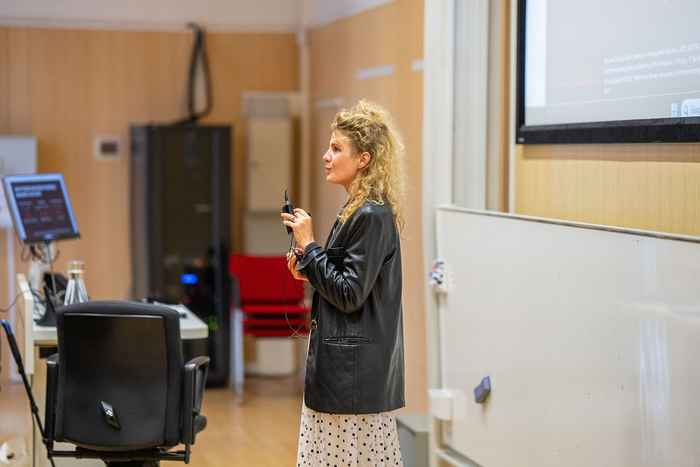
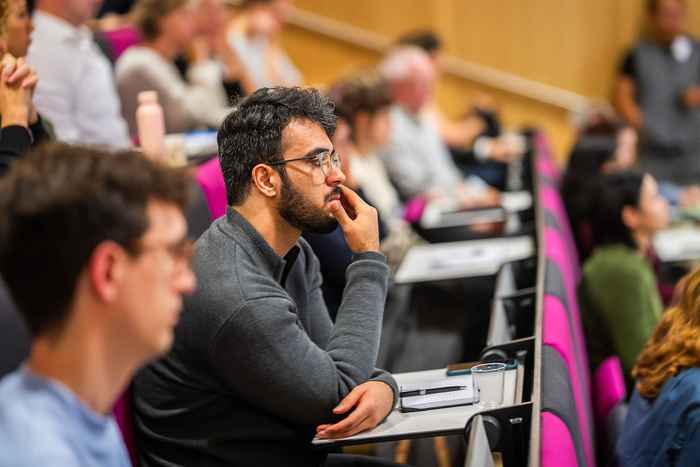
During the event, HR startups shared innovative Generative AI-based solutions for analytics, organizational learning, and employee feedback.
Thank you
We thank all the organisers, speakers and participants for making Data Science Day 2024 such a great success. See you again next year!